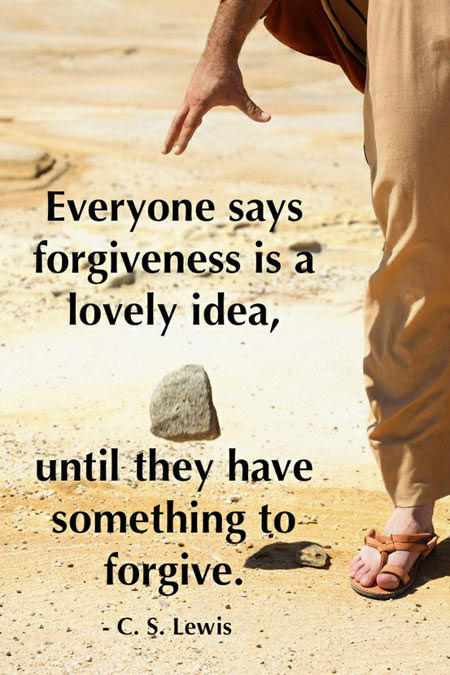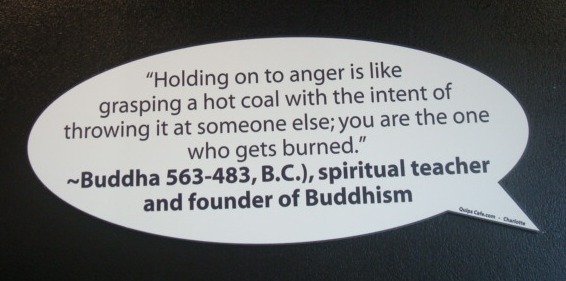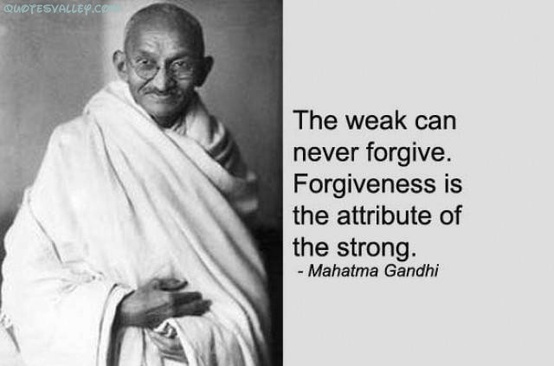I have been musing about forgiveness lately. Maybe because I need some. Or maybe because I have to extend it to someone out there. Regardless, it seems like a difficult concept for some of us to grasp. I understand why. Sometimes the pain done to you hurts too much that you just don’t want to part with the forgiveness in your pocket. Or sometimes the pain you caused is so deep, you can’t figure out how to ask for forgiveness from the person you wronged. A lot of us have trouble forgiving ourselves. Intellectually, we all agree that forgiveness is important. Experientially, few of us want to do it. The truth is…
we all want to receive forgiveness when we need it
but few of us like giving it when it’s required.
 Either way – forgiveness is essential for all relationships. Forgiveness is a complicated machine and so I figured I’d open up the hood and take a peek at the mechanics. Here is what I see:
Either way – forgiveness is essential for all relationships. Forgiveness is a complicated machine and so I figured I’d open up the hood and take a peek at the mechanics. Here is what I see:
- Everyone needs forgiveness. We have a lot of sayings in our culture about our human inadequacies; “I’m only human,” “To err is human,” “Nobody is perfect.”, etc. The reason we have them is obvious. As humans, we make mistakes constantly. We do and say stupid things. We hurt others daily, intentionally and unintentionally. Forgiveness is necessary to cleanse the slate. It is the eraser for the chalkboard of life. We need it in order to restore relationships and mend broken friendships. Sometimes it is the only thing that can repair a relationship, particularly when restitution is simply not possible.
- Forgiveness should be asked for. When a wrong is done, forgiveness cannot be assumed, it should be asked for. Saying “I’m sorry” is a good first step but it is not the same as asking for forgiveness. Children say, “I’m sorry.” Adults say, “Please forgive me.” “Sorry” can be said with pride. Sincerely asking for forgiveness can only be said with humility. “Sorry” keeps control in your hands. Asking forgiveness gives control to the person you wronged. “Sorry” is like a band-aid. “Please forgive me” is like surgery – it can bring true healing to the soul and broken relationship. A proper, appropriate apology should have the following components:
“I am so sorry for….”
“I was wrong to….”
“Please forgive me for…”
- Forgiveness needs to be extended. This is the hardest aspect of forgiveness, extending it to those who need it. Like I mentioned earlier, we all want it when we need it but few of us want to give it when it is required. Even as I type this, someone out there will think of some scenario (real or otherwise) and challenge this point. “You mean that someone who does _____________ (fill in the most despicable, evil thing you can think of) needs to be forgiven?” Yes. Even that guy. Eventually. I am not saying that forgiveness can or needs to be immediate. It is never easy. Sometimes it can take a long time to get to the point where you forgive someone for the wrong they have done, particularly if the offense is sizable. But, they do need to be forgiven. By you. Withholding forgiveness not only hurts them and prevents them from the necessary healing, it keeps you from it as well. The last thing we want to do is relieve any guilt the offender may be feeling. After all, we justify that it’s the least he deserves for what he has done. The problem is, withholding forgiveness does more damage to you.

- Forgiveness has conditions. If there was ever a reason why you should forgive those who have wronged you, this is it. Did you know that if you withhold forgiveness from others, God Himself has promised to withhold it from you? “For if you forgive other people when they sin against you, your heavenly Father will also forgive you. But if you do not forgive others their sins, your Father will not forgive your sins.” (Matthew 6:14-15) Compare any sin committed against you to the ones you’ve committed against God and you should have the wrong placed immediately into perspective. If Jesus can forgive the sins that placed Him on a cross, certainly you can forgive the sins against you. Remember, the sins against you did not kill you.
- The Golden Rule in forgiveness. The above condition should put the wrongs committed against you into perspective. If that does not, then put yourself into the seat of the offender for a minute. Walk a mile in their shoes. Granted, what they did was wrong. It may be true that what happened to you was mean or hurtful or even intentionally evil. Perhaps what they did to you can never be undone or “fixed.” Having said that, if you were in their place, wouldn’t you want to be forgiven? One of the main motivators of why we do what we do (even forgive!) is because we know we should “treat others the way we want to be treated.” (Matthew 7:12) There may be a time, sooner than you think, when you want someone to treat you the way they want to be treated, not necessarily the way you deserve to be treated.
- The undeserved nature of forgiveness. Forgiveness, like grace, is never deserved. That’s what makes it so powerful. Forgiveness, like a gift, can never be earned. It can’t be. That’s why it brings such freedom. The reason that forgiveness is so hard to extend to wrong doers is because it goes against our very protective nature. Holding a grudge is safe. Offering forgiveness makes you vulnerable. Deep down, we desire fairness. At our core, we scream for justice. We ache for restitution or payment for wrongs done. And oftentimes – if not most times – forgiveness must occur before justice, fairness or a balanced ledger is in place. It does not mean that justice should not be sought or that restitution should not be given. It does not mean that the wrong is overlooked or the pain is simply ignored. It just means that an olive branch of peace is being extended even while the smoke of the last musket shot is still in the air. Sometimes it is the offering of forgiveness that brings about the justice and healing we so desperately need. Too often, we must try to heal the hurter before our wounds can be truly healed.
“Keep in mind, hurting people often hurt other people as a result of their own pain. If somebody is rude and inconsiderate, you can almost be certain that they have some unresolved issues inside. They have some major problems, anger, resentment, or some heartache they are trying to cope with or overcome. The last thing they need is for you to make matters worse by responding angrily.” – Joel Osteen, Pastor.
- The example of forgiveness. If anyone understands forgiveness, it is Christ. No one in human history has been so innocent and yet so wronged. The very purpose of His presence requires a global apology from mankind. Formerly occupying a heavenly throne, He was born a baby in a manure scented manger. Having created the universe with the “word of His power”, He entered as a defenseless child having to learn how to walk and talk like the rest of us. Instead of being recognized for the Deity that He was, He was known as a mere carpenter from Nazareth… “can anything good come from a place like that?” He claimed to be the Truth while most people thought He was lying. He claimed to be a King but lived like He was a pauper. He was constantly mocked by strangers. He was doubted by everyone – even members of His family. He was beaten by Roman soldiers. He was spit upon by prison guards. Think about that. Nothing is more degrading than human spit on a holy God. He was flogged by His government. He was slandered in court. He was betrayed by His closest friends. He was sentenced to death by the Church. He was condemned to die naked, publicly humiliated, among thieves. He was deserted by everyone at His greatest hour of need. He was even deserted by His own Heavenly Father. Clearly, that was the hardest part for Him as He cried out, “My God, My God, why have you forsaken Me?” For three hours on an excruciating cross, He was truly alone – in every sense of the word.
And yet while there in that position.
Hurting in every way possible.
Barely able to breathe from the pain.
Before anyone even regretted what they had done.
Or even asked for forgiveness.
He did the unthinkable.
He did what a God would do.
He prayed for His enemies. He blessed those who cursed Him. He turned the other cheek and walked that second mile. He practiced what He preached.
He forgave.
Even me.
Even you.
Let’s do the same.
“Let all bitterness and wrath and anger and clamor and slander be put away from you, along with all malice. Be kind to one another, tenderhearted, forgiving one another, as God in Christ forgave you.” – Ephesians 4:31-32
- An amazing song about forgiveness by Matthew West.
- http://www.youtube.com/embed/h1Lu5udXEZI
